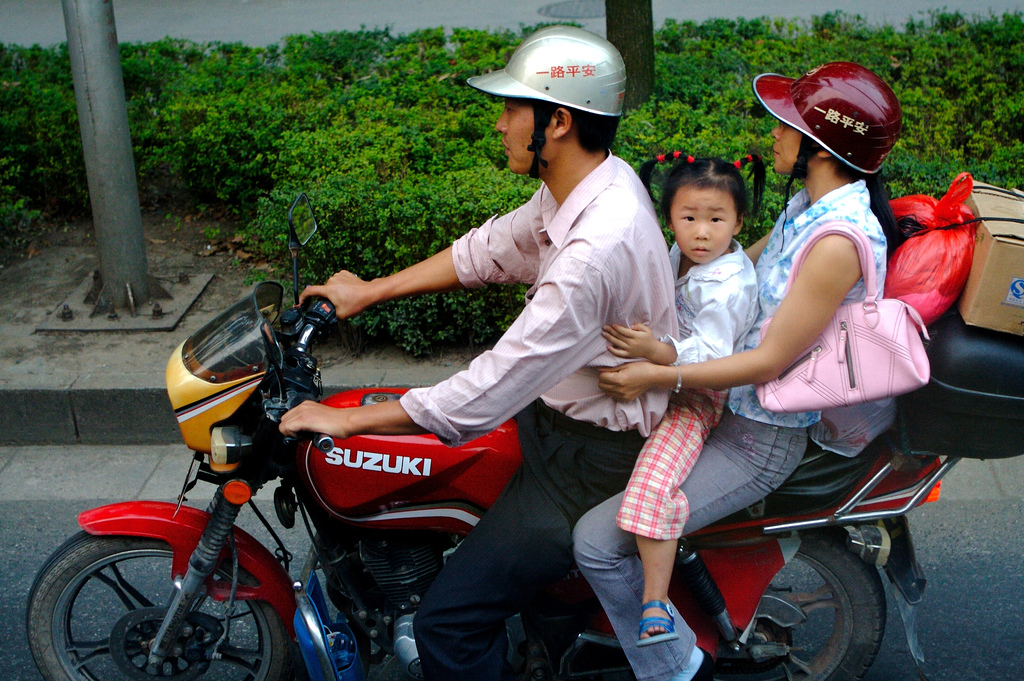Gendercide in China

Background
Due to China strict population laws, the pressure to have a male heir has intensified. Implemented in 1979, it restricts the number of children that urban couples can have.  Although there are exceptions that include: rural couples, ethnic minorities, and parents without any siblings. According to a representative from the Committee on the One child policy , the “one child policy” only pertains to 35.9% of the populationMost people free to have more child”. 7/11/2007. http://www2.chinadaily.com.cn/china/2007-07/11/content_5432238.htm. Retrieved 2010-06-22. ;gt;. This is not including Hong Kong, Macau, and Tibet.
Although there are exceptions that include: rural couples, ethnic minorities, and parents without any siblings. According to a representative from the Committee on the One child policy , the “one child policy” only pertains to 35.9% of the populationMost people free to have more child”. 7/11/2007. http://www2.chinadaily.com.cn/china/2007-07/11/content_5432238.htm. Retrieved 2010-06-22. ;gt;. This is not including Hong Kong, Macau, and Tibet.
The Chinese government put into effect this policy in order to combat: social, economic, and environmental problems that came about because of overpopulationRocha da Silva, Pascal (2006). “La politique de l’enfant unique en République populaire de Chine” (“The politics of one child in the People’s Republic of China”). Université de Genève (University of Geneva). p. 22-8. (French);gt;.
Sadly, due to this measure, there is a severe gender imbalance in China because of abortions, and Female infanticide ;For studies that reported underreporting or delayed reporting of female births, see the following: M. G. Merli and A. E. Raftery. 1990. “Are births under-reported in rural China? Manipulation of statistical records in response to China’s population policies”, Demography 37 (February): 109-126;;gt; Johansson, Sten; Nygren, Olga (1991). “The missing girls of China: a new demographic account”. Population and Development Review (Population Council) 17 (1): 35–51. doi:10.2307/1972351. http://jstor.org/stable/1972351. ;gt; * Merli, M. Giovanna; Raftery, Adrian E. (2000). “Are births underreported in rural China?”. Demography 37 (1): 109 126.;.
Minority Rights
Although the One Child Policy is supposed to have exemptions for non-Han women, one human rights advocacy source suggests that there is “growing evidence” of Tibetan women are being coerced into abortions and sterilisations.http://www.tibet.org/Activism/Rights/birthcontrol.html
Cultural issues
Farmers who live in remote areas tend to treat newborn baby girls less well than baby boys. A witness recounts the birth of a baby girl in the Shandong province: as soon as the baby was born, a man growled: ‘Useless thing!’. The baby girl was thrown in a bucket. Murdered.
The witness tried to save the baby but was stopped. An older woman “said comfortingly, ‘it’s not a child….it’s a girl baby, and we can’t keep it. Around these parts, you can’t get by without a son. Girl babies don’t count”.Economist, The. The worldwide war on baby girls. 4 May 2010. 20 June 2010, http://www.economist.com/node/15636231.
In some societies, expecially in places such as rural China, there is a preference for sons for inheritance reasons. Most girls, after getting married, no longer are considered a part of their original families.Their use, from their wedding day is to the husband’s family. According to a Hindu saying which sums it up succinctly, “raising a daughter is like watering your neighbors garden.”
Gender Gap Shifting Problems to the Future?
Men aged under 20 in China exceed their female counterparts by 32 millionCanaves, Sky. “China’s Gender Gap: 32 Million Extra Boys.” 10 April 2009. China Real Time Report . The Wall Street Journal. 20 June 2010, http://blogs.wsj.com/chinarealtime/2009/04/10/china%E2%80%99s-gender-gap-32-million-extra-boys/>.. The one child birth policy that was originally put into effect in order to create social and environmental harmony has caused a biological deficiency within the Chinese population.
The 1970s social reforms for the population has created a male surplus of 32 million. Obviously governmental initiatives do not complement Chinese cultures, which still embraces old time beliefs and traditions.
Rural China still highly values males over females. This has led to abortions of female children in order to stay within the one child policy.
The Chinese Academy of Social Sciences in January did a study and discovered that in the next ten years one in five young men will not be able to find a bride. And by 2020 there will be 30million-40million more young men than women.
What this will do to the psyche of men within China is unforeseen, because there will be a large surplus within the population that is not anchored by family. Social, economic and biological problems could arise.


